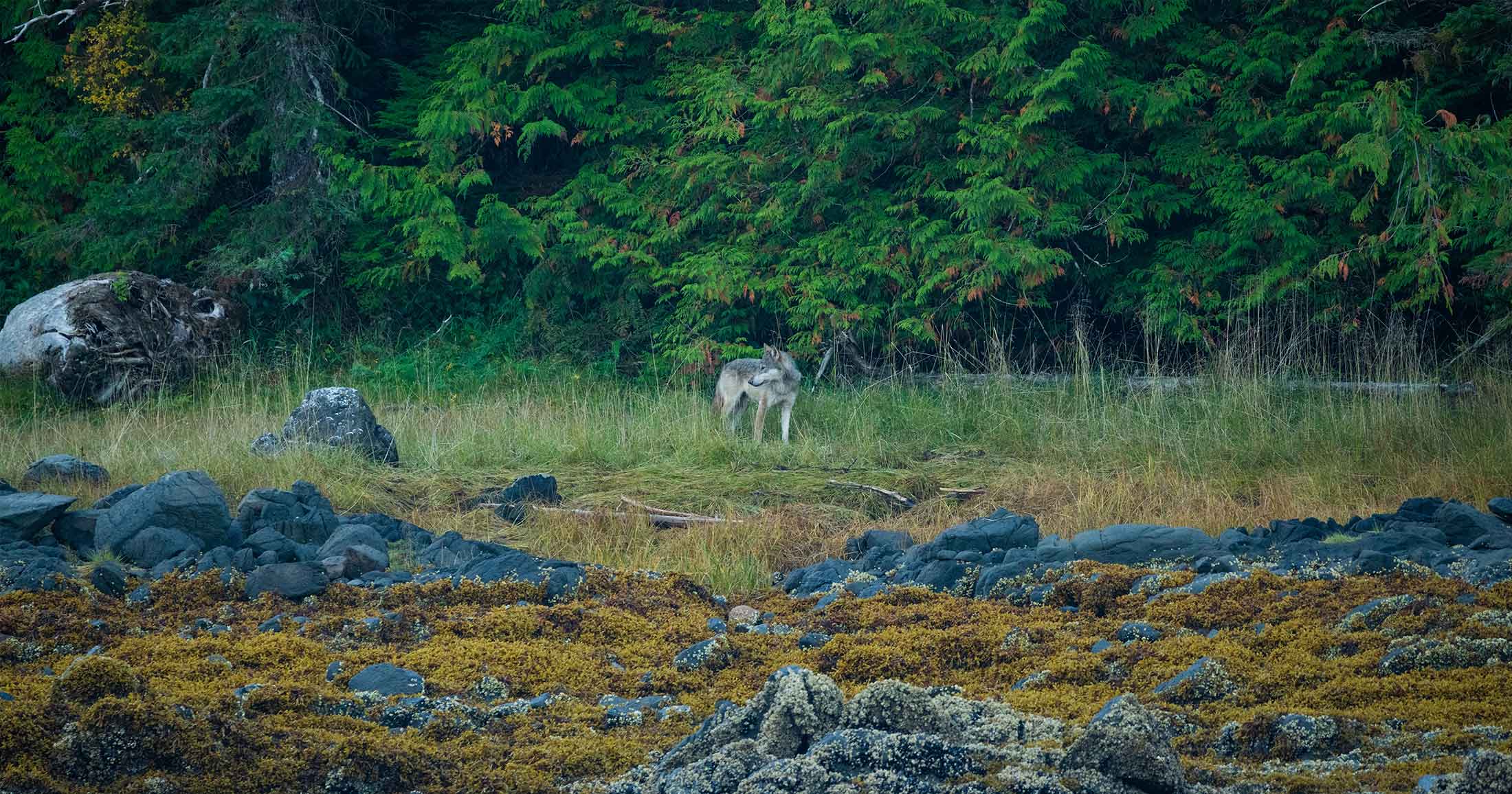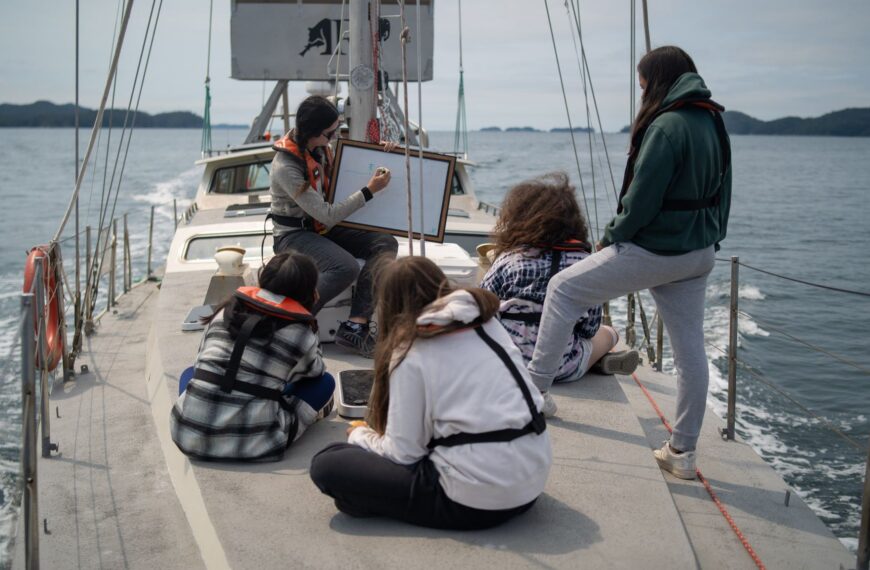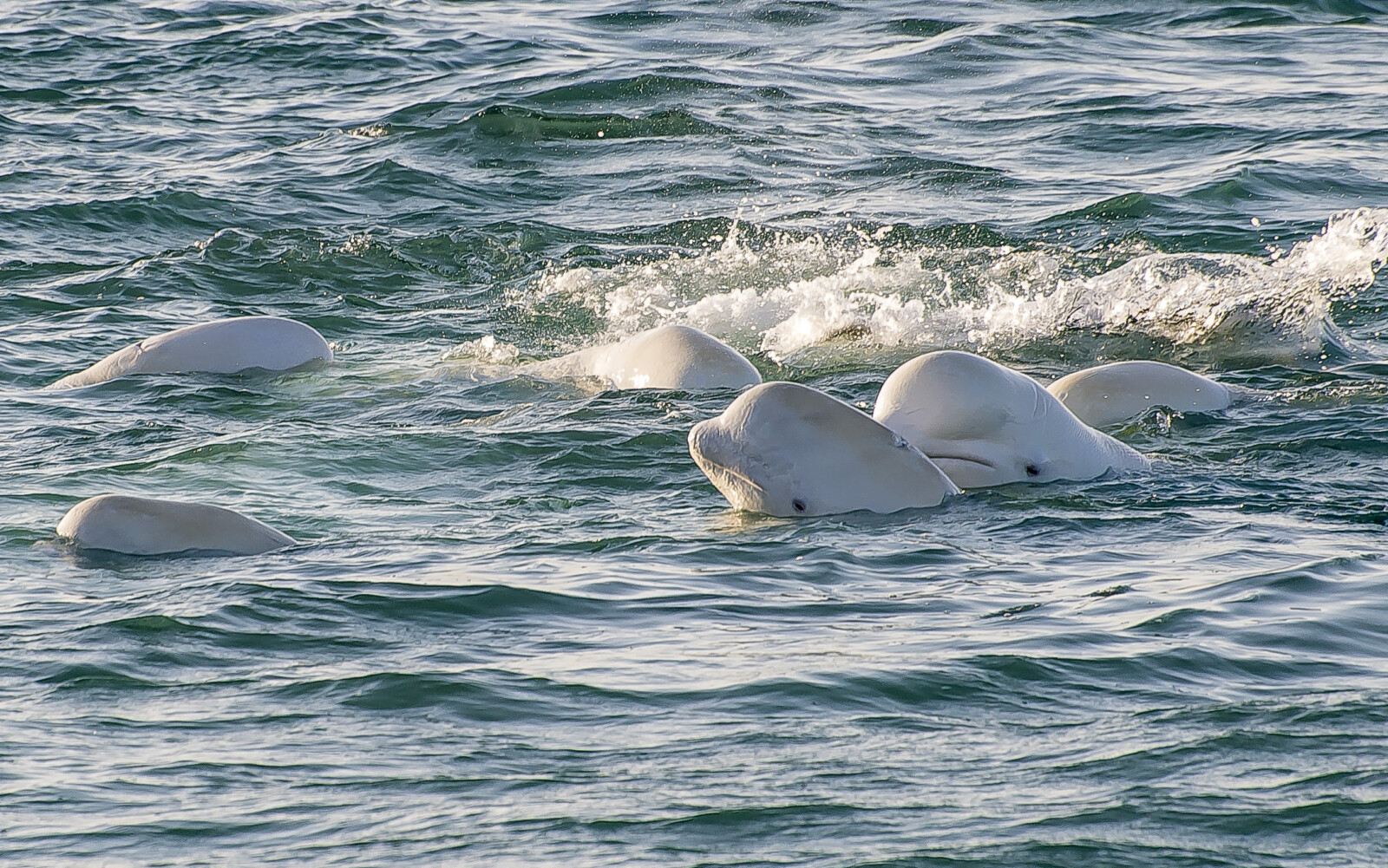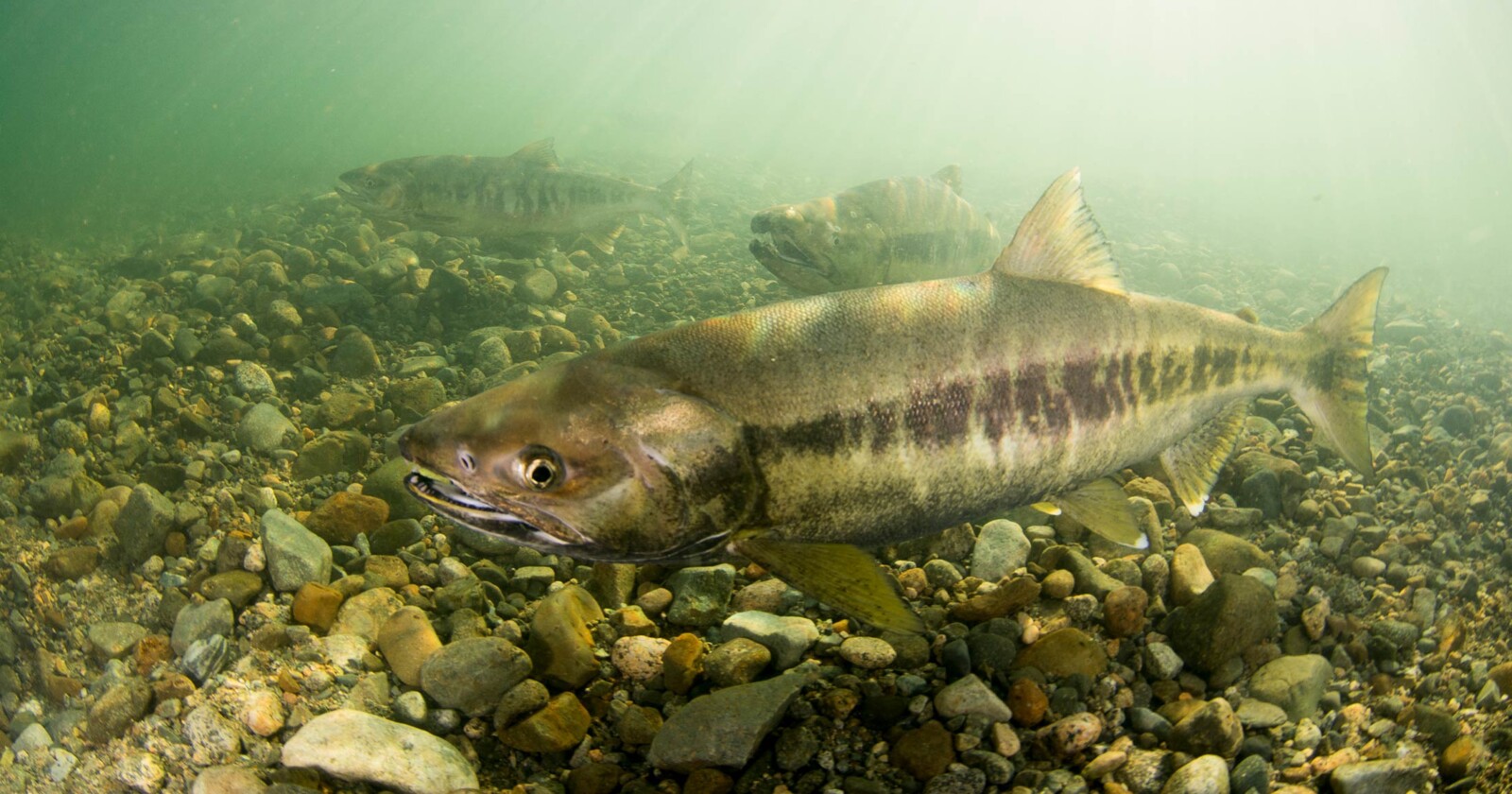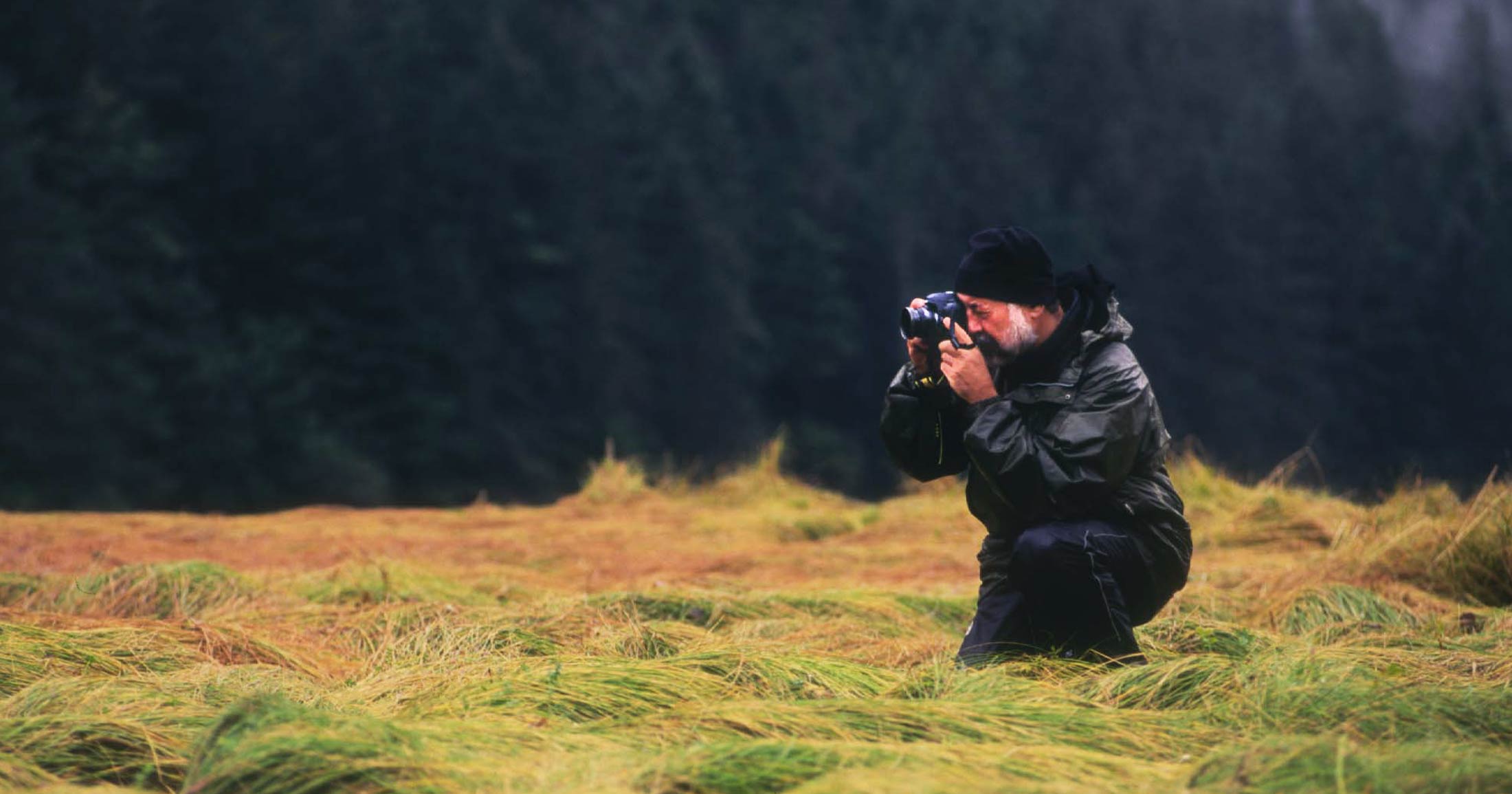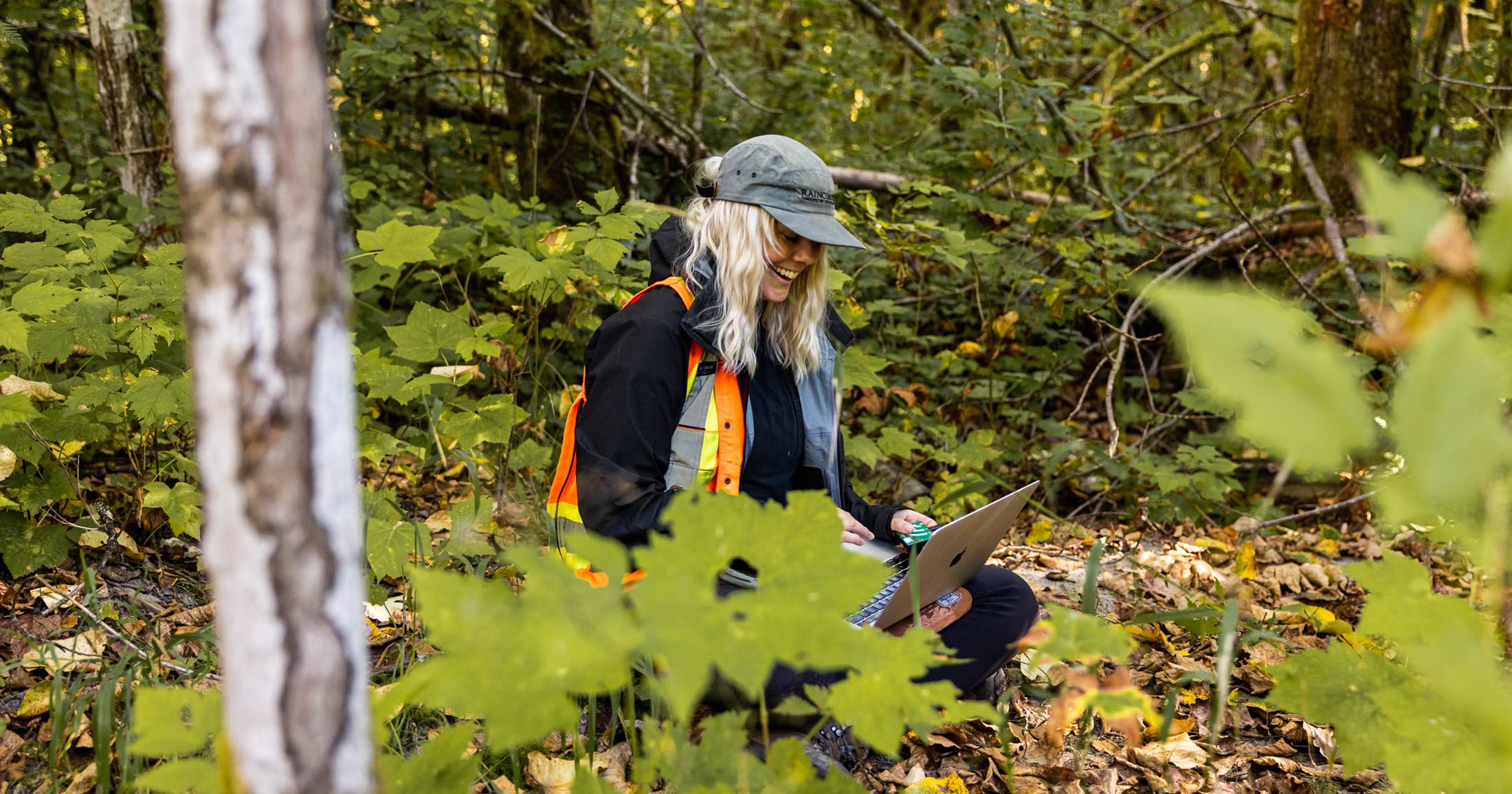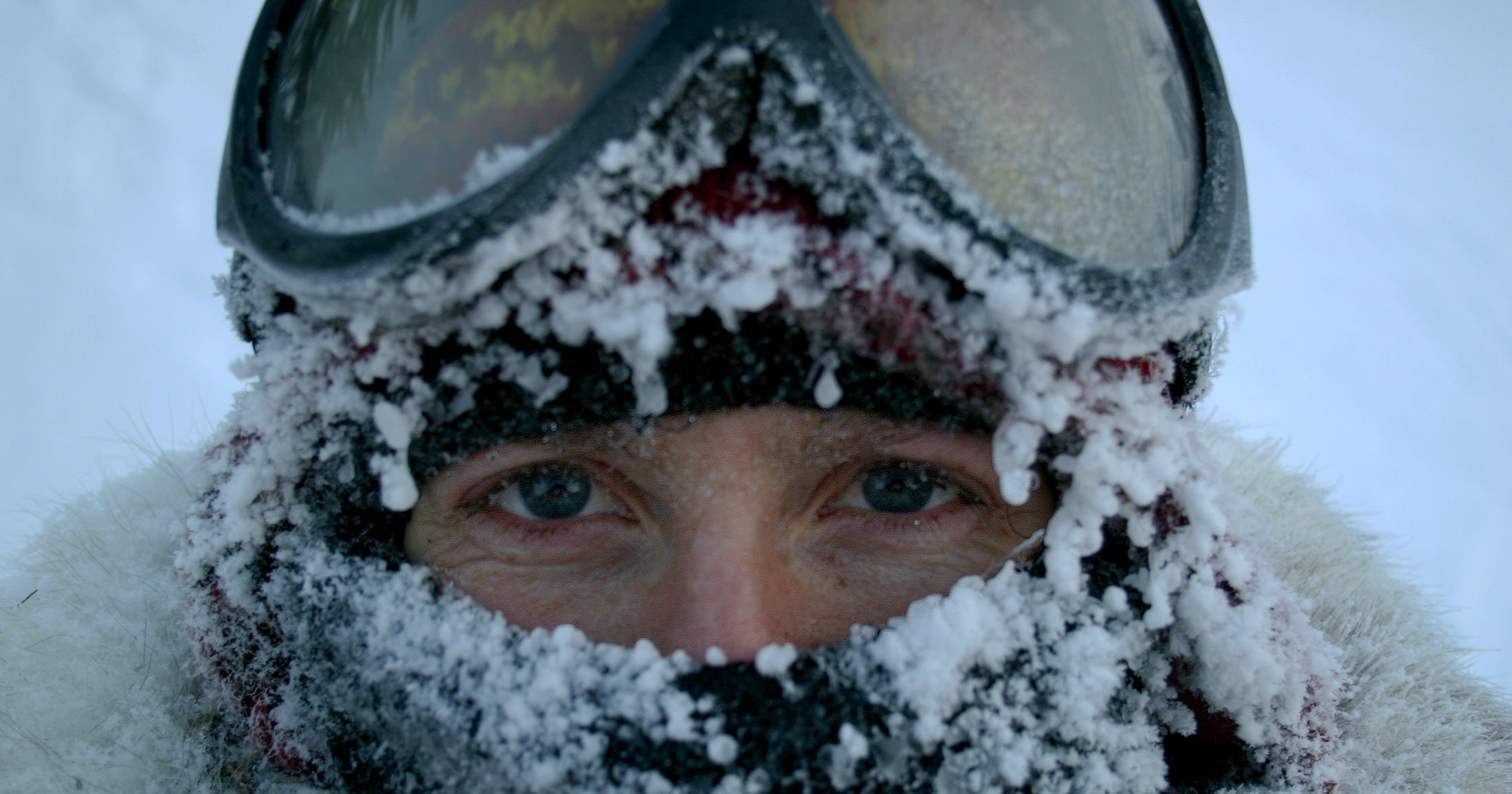Wolf Stories: Reflections on science, ethics, and moral practice (Part 2)
Wolves are symbols of all the things that we love about nature, and they're symbols about all the things that we fear about nature. They’re also a symbol that makes us not only think, but feel deeply.
Drs. Michael Paul Nelson, John A. Vucetich, and Joseph Bump share their insights on ethics and moral practice in conservation and how to think through scientific and ethical issues, particularly those related to the conservation and lethal management of wolves. This is the second in a two-part interview.
Michael is an environmental scholar, writer, teacher, speaker, consultant, and professor of environmental ethics and philosophy at Oregon State University. John is a distinguished professor at Michigan Technological University, where he teaches population biology and environmental ethics. John co-leads and Michael is the philosopher in residence of the Isle Royale Wolf-Moose Project in Lake Superior, the longest continuous study of any predator-prey system in the world. Joseph is a professor and the Gordon W. Gullion Endowed Chair in Forest Wildlife Research and Education at the University of Minnesota. He is one of the leaders for the Voyageurs Wolf Project and studies how wildlife interactions affect ecosystem processes and biodiversity.
Do wolves deserve moral consideration? Is there ever a justification to kill a wolf?
JB: We ask this question in one of my courses. We generalize it – we could say, wolf, or we can say another animal. The interesting thing is these are 17 to 18-year-olds and almost right from the get go, they can all say, well, what about self-defense? And that anchors one end of a justification – self-preservation. Okay, we can all agree on that. Then it will go through a spectrum from, I need to eat an animal or clothe myself to survive and I legitimately have a subsistence claim, all the way to recreation, to something that we would say is abhorrent recreation, like target practice on live animals. That spectrum has different considerations at every point, but at the one end, self-preservation might be one where you find wide scale agreement. And wide scale agreement on the other end, you don’t kill a wolf just for fun.
“The taking of a life, of something that merits moral consideration, is never to be done lightly.”
Dr. Michael Paul Nelson
MN: Another way to ask this question is to say, should we extend intrinsic value to wolves? Should we recognize that they have value that transcends their use, value that transcends what benefit they have to us? Even if we weren’t here on this earth, they would have value. And therefore, if the things that have that intrinsic value are the things we think of as having direct moral standing, they count in and of themselves.
With regard to wolves, the answer is fairly obvious, yes, there is every reason to consider them intrinsically valuable. They’re highly social, they’re sentient, they’re intelligent, and they possess the qualities that we believe are worthy of the attribution of intrinsic value and direct moral standing in ourselves. That’s one approach to expanding our moral circle. As we say, these are morally relevant qualities in humanity, we see them in the nonhuman world; therefore, we’re compelled by the force of consistency to extend moral consideration. Some people don’t like that answer because it centers humans in an uncomfortable way, even though they recognize that it’s logical consistency.
There are other ways to suggest that wolves and other parts of the nonhuman world possess intrinsic value and direct moral standing: just the idea of manifesting humility or reciprocity, thinking hard about what an appropriate reciprocal relationship looks like, recognizing that the narrative of humans as masters and rulers is just that, it’s a narrative, and it was crafted and honed, and told and retold, and coerced and forced. Narratives are choices and we have a choice.
That narrative isn’t very adaptive and we’re finding out now, we need to replace it. We’re not masters and rulers of the world, we’re students of the world. We learn how to live in the world by attending to what the world has to teach us. We are kin with the rest of the world; the wolf as our teacher, the raven as our grandfather, the chimpanzee and dolphin as our brother and sister. That’s a narrative that may serve us much better than the master narrative.
When you ask questions about, is it ever okay to kill a wolf, you could just go back to a kind of morality that we’re already comfortable with, and that’s an entire human morality. Are there times when we think it’s okay to kill another human being? And if we answer yes, what are the conditions? And then we can extend that. The main point is that the taking of a life, of something that merits moral consideration, is never to be done lightly. The burden of proof is always on the taker of that life. And in general, living things shouldn’t be killed for no good reason.

JV: The first question deserves more consideration. There are so many different ways to approach it. Michael described a couple of the ways. Another way, that’s not very robust, but useful for grabbing a toehold on is, do you think that a wolf should be killed for no good reason? If you think the answer is no, then you think a wolf should be considered morally. So it is easy to reframe that question in a way that’s super easy for anyone to understand.
As controversial as the question of when to kill wolves is, I have not met one person that thinks it’s okay to kill a wolf for no good reason. They always feel compelled to offer a reason. We might disagree about whether it’s a good enough reason to kill something or not. And so the fact that almost universally people would say, no, you have to have a reason to kill wolves, means they deserve some kind of moral consideration. Again, that can be useful for bringing people onto that common ground.
To follow on the other thing that Michael was saying about a burden of proof being on the person who wants to do the killing, not the person who says you have to refrain from killing, the one exception to that idea is if you’re opposed to killing wolves, do you have some obligation to say provide a counter-argument to those who approve of killing wolves in cases where you’d disagree? As Joseph mentioned, self-preservation is one where lots of people would be inclined to agree that it’s okay to kill the wolves. But the other scenario that we can imagine, specifically because it shows up often, is, is it okay to kill wolves in a recreational hunting context?
Again, a lot of people have offered reasons for why they think that it’s okay, reasons that are not quite adequate for people who think that it’s a bad idea to just say you have to give a good reason for it. Advocates for recreational hunting think they have given a good reason for it, and so there is a little work to be done for folks who care for wolves to understand and be able to articulate reasons why recreational hunting is not appropriate.
What are some of the reasons that people offer to justify recreational hunting?
JB: There’s a position that they’ll grow uncontrollably. Their numbers will get to a point that is not healthy for the prey in the system or the number of conflicts that are caused. I think that is one of the most appealing positions. You can enter into conversation about those different reasons, and there’s really good science to address both of those.
JV: To keep a conversation like that non-technical, I would try to shift the conversation to, well, what we shouldn’t be doing is managing wolves so that they’re at some number, the number of wolves is absolutely irrelevant. If a cow is killed by a wolf, that cow does not care how many wolves are on the landscape. That cow, and the livestock owner, just care that it was killed. The shift should be away from numbers to what is the problem that maybe is being caused by wolves and what is the best way to manage that problem. We can go through some of those in just a moment, but I’ve never known recreational hunting to be a good solution for any of the conflicts that arise.
MN: And the troubles wolves cause are often not solved by a general recreational hunt, for instance.
JV: Here is where the conversation gets quite scientific, not ethical. A problem that wolves cause is that they sometimes kill livestock, and there’s a great deal known about how to manage conflict between livestock and wolves. One of the things that is known, for example, is that you have to attend to the problem right away; as soon as it happens, you have to identify the wolves that were involved specifically in that incident. Recreational hunting doesn’t have any of those properties. Recreational hunting would often occur many months after the livestock was killed and you can’t just hope that some hunter will have the good fortune of killing the offending wolf several months later. So again, recreational hunting is not a good way to manage livestock conflicts.
The other argument that was made, which almost sounds incredulous, except for the fact that it happened in Michigan, was that wolf hunting was necessary to protect human safety. It’s pretty easy to demonstrate that wolves are not a danger to humans, and even if they were a danger, again, you would wait until the next upcoming hunting season to deal with the concern that a wolf was a threat to humans.


JB: Their impact on prey populations and individual hunters who are valuing large ungulates and their ability to have a successful deer, moose or elk hunt is a common rationale. Again, you can make it about numbers and how many wolves could kill how many animals, and look at the population estimates for deer, moose, elk, and see that we’ve got plenty and that these units are having success rates that are growing. But we can also empathize with a hunter that has gone to the same spot and had the similar level of success year in and year out, and wolves recolonize, and the dynamics of their individual experience can change.
It doesn’t mean there are less deer on the landscape. It doesn’t mean there are fewer elk across a scale, across a hunting unit. But hunters might have very different experiences. They might have a harder time hunting when predators are affecting the movements of their prey around the landscape. So acknowledging that on a micro-scale, because a lot of places are sit-and-wait sort of hunting operations, but they might be affected in a way that they perceive less prey on the landscape. It’s difficult because essentially you’re telling them what you see is not actually not a real phenomenon.
JV: And that’s where state agencies can help out a great deal because the psychology of hunting, especially hunter satisfaction, is well studied. And one of the things that’s really important for hunter satisfaction is expectations. You go on some hunts and you expect to be successful, and you go on other hunts and you understand, there’s really just a slim chance that I might get something, or if I’m going to get something, I have to work really, really hard. And so there is a burden on a state agency to create proper expectations for certain hunting situations. And that can help out greatly with some of the ideas that Joseph was mentioning.
But there it is, there’s four reasons that people offer for recreational hunting: we need to hunt them, we need to protect livestock, we need to protect human safety, and we need to protect hunter satisfaction. We didn’t exhaust all of the reasons why recreational hunting is not a good way to solve those concerns, but we at least touched on them all. And in truth, I don’t know that I can think of other reasons that people have offered for why recreational hunting of wolves is a good idea.
MN: Unless there are reasons that we are not being honest about, right? There are other things that really lie behind some of these things that we’re not talking about.
JV: To be real and concrete about it, a good example here is hatred. Some people would say, I want to hunt wolves because I hate them. I think that for some people that’s an extremely honest answer and it’s also a wildly inappropriate answer. The state of Michigan and the state of Wyoming represent interesting contrasts here. Michigan was the place where it was said that the reason we want to hunt is to protect livestock and human safety, and then designed a hunt that would have no impact on human safety or livestock. And I think the reason that they went for that approach is because they felt like, well, who could argue with the value of human safety and who could argue with the value of protecting livestock? Those are great things.
And so they didn’t worry too much about the fact that there’s not a connection between that and the hunting. They knew that the real reason that some people were clamoring for hunting in Michigan is because some humans hated wolves, but they knew that idea wouldn’t fly. So they had two bad ideas that they could pursue, and they just picked the one that they thought they could get the furthest with.
Contrast that with Wyoming; Wyoming was straightforward, at least at a state level. They all but used the words we hate wolves, we want to get rid of as many as the federal government will allow us to, and we will design our hunt accordingly. And the state of Wyoming lives, sadly, in a culture where the government could get away with that. I don’t think the government of Michigan felt like they could have gotten away with that.
JB: The hate for wolves can be conflated or not be about wolves. You could hate the federal government and they’d force these species on you. So you’re going to take out your feelings on the wolves. Or you could hate the European Union and the way they collectively manage wolves and say, Scandinavia and other countries telling your country what to do, and that affects your motivation for hunting.
JV: These transferred emotions, it’s hard to know that they’re always misplaced.

MN: Another thing that is lurking here, and this is the philosopher in me, is that all of these things tie together in an interesting way and they only make sense if I make certain assumptions about the world, including my own abilities to control and manage. My worldview that suggests that the world is a machine and it’s reductionistic, and humans are above and beyond the machine, and our safety and our ability to have the experience we want to have is the most important thing; it’s that narrative and that worldview that I think ultimately creates the problems that we have to begin with.
And so simply doubling down on it, reapplying it without reflecting very seriously about, where does this worldview come from, why is it wrong, why is it mistaken, and how can we rethink that worldview? Without doing that, my worry is that conservation is just a lot of stopgap efforts where we’re begging for restraint in certain cases, and that’s about the best we can do. I don’t know if that’s a very sustainable strategy over time. Worldview remediation seems to also be a really important part of learning to live with wolves and finding our way in the world, and certainly in the world of conservation.
“[Wolves are] a symbol that makes us not only think, but feel deeply.”
Dr. Joseph Bump
What do wolves tell us about our relationship with nature?
JV: This is one of the most remarkable things about wolves, compared to so many other animals, is that they’re symbols. They’re symbols of all the things that we love about nature and they’re symbols about all the things that we fear about nature. There’s something magical and special about that, but there’s something very tragic about that, too, because at the end of the day, a wolf is still just an animal; it’s got four paws and a tail that wags. It’s like when we symbolize a human being; it’s not fair to symbolize human beings, but at the same time, symbolizing stuff is another thing that makes you distinctively human, and so we know we can’t stop doing it.
MN: Wolves are a great example that really brings forward that general attitude about nature and the struggle that we have. Other things don’t seem to be quite as problematic in that way, but wolves really are the symbol for generally how well we’re living in the world and how we’re struggling to live in that world.
JB: And a symbol that makes us not only think but feel deeply.
JV: Wolves are hard to get along with, and they’re hard to get along with in two different kinds of ways. For some people, they’re hard to get along with in the sense that wolves eat the same thing that another person wants to eat, whether that’s a white-tailed deer or cow. And the other thing is that the people who are involved, the people who really like wolves, don’t like people who don’t like wolves. Wolves bring out a conflict between people as much as they do a conflict between humans and wolves.
That complicated interaction is a huge theme in conservation because conservation is not only about how it is that humans as a group treat nature, but it’s also about how humans treat each other when it comes to either using nature or relating to nature, or connecting with it. And that sometimes is denying other people adequate natural resources or denying them clean water and clean air. It’s a parable for the whole package.
JB: It can be as deep as denying a creation myth. Case in point, you have Anishinaabe or Ojibwe peoples here in the upper Great Lakes region where the wolf is a brother through creation and walks the same path; that’s part of their origin story. And then wolves and other predators are almost exclusively referred to in Christian texts as monsters of God that challenge our opportunities for cleansing. So there’s great history, psychology, a combination of all those, that looks at how different cultures and societies have done it, but we are contrasting really fundamental worldviews, which challenges ourselves as much as our individual relationships with nature.
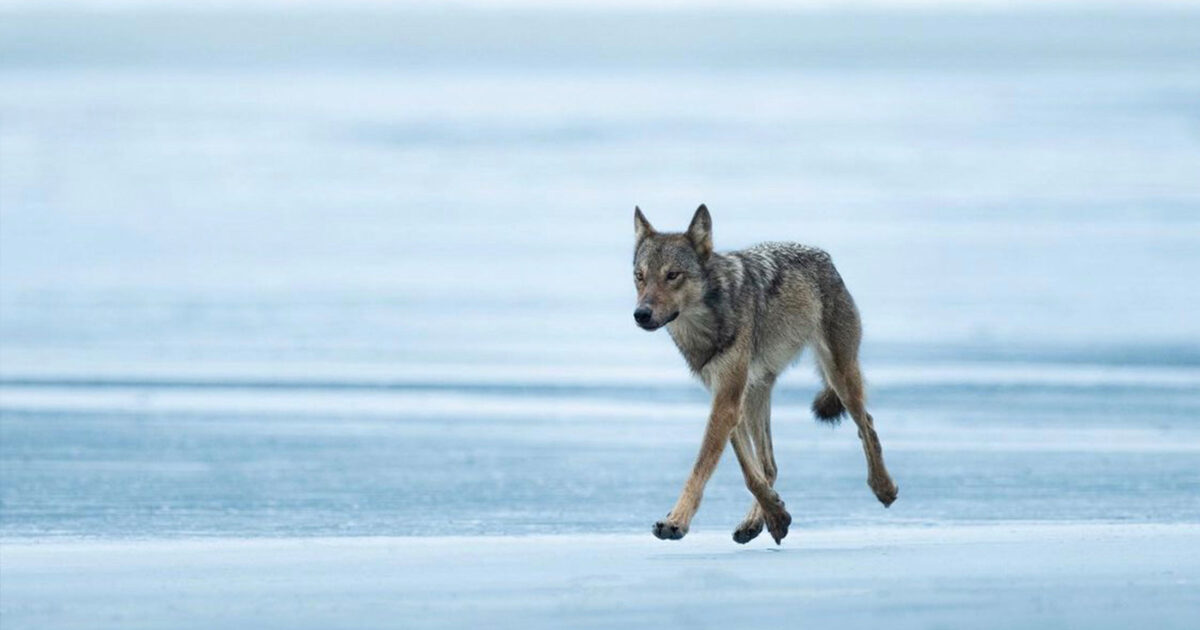

What is the role of ethical discourse in decision making with regards to wolf management policies and practices?
MN: For me, ethics sits at the core of policies and practices. A policy or a practice is always prescriptive. We ought to do this. We ought not to do that. So ethics is unavoidable, whether we realize it or not, or whether we carefully and thoughtfully attend to it or not. I think we owe it to other living things in the world, and quite frankly, I think we owe it to ourselves and our own humanity to attend to the ethical dimensions of our decision making much more seriously than we do.
We need more ethical discourse on wildlife. We need ethics training. And I don’t just mean behaviour training, I mean ethics training in a more profound way. We need professional ethicists working in our state and federal agencies. We need ethics as part of our natural resource programs at universities. We need to make sure that we’re not in “the business of training missiles without systems,” to quote Phil Pister, a great conservationist who recently passed away. Simply assuring ourselves of our own goodness is not a sufficient way to enact wise and ethical decisions regarding wolves or the rest of the natural world. For me, we need much more deliberate and serious attention to this dimension of conservation.
JB: I’d offer something more on the microscope. For me, and it’s really a credit to John and Michael’s training and my history, if you don’t have an ethical perspective, it’s going to be really challenging to understand the sticking spots in the field, like this huge wedge between traditional wildlife management and conservation biology, favoring collectives over individuals. And then there’s also a really important role that is one step past. Let’s say you decide to have a recreational hunt, the values of your state or the politics or whatever it is, there are also still really important ethical considerations in how that’s implemented, what techniques are allowed, what seasons are allowed that have ethical dimensions.
JV: The importance of ethical discourse, it can be usefully situated to what role do we think science is supposed to play when it comes to managing wolves and making conservation decisions, and notwithstanding the sometimes uneasy relationship between science and society. There’s a broad understanding that science is important, but science only tells us what we’re technically capable of doing. That’s all that it does. And the question you can never escape is what should you do? It’s a fairly impoverished society that’s only interested in the first question and not the second question. What can we do compared to what should we do. In fact, what should we do? That’s the only question that makes us human. And so to deny that question is to deny your human nature.
You can help
Raincoast’s in-house scientists, collaborating graduate students, postdoctoral fellows, and professors make us unique among conservation groups. We work with First Nations, academic institutions, government, and other NGOs to build support and inform decisions that protect aquatic and terrestrial ecosystems, and the wildlife that depend on them. We conduct ethically applied, process-oriented, and hypothesis-driven research that has immediate and relevant utility for conservation deliberations and the collective body of scientific knowledge.
We investigate to understand coastal species and processes. We inform by bringing science to decision-makers and communities. We inspire action to protect wildlife and wildlife habitats.


